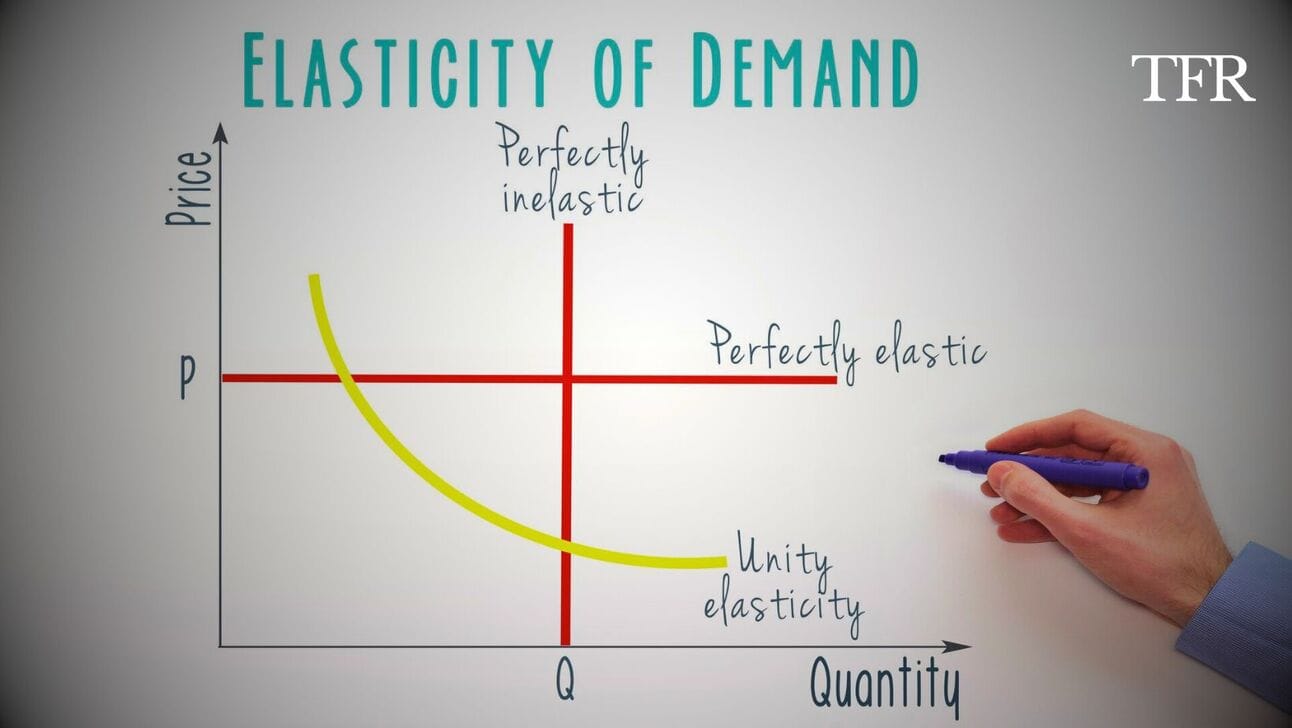In the UK, and many other countries across the world, the cost of living continues to put a strain on a lot of the general public.
And in a lot of cases, it isn’t out of necessity.
It’s out of greed.
The reason for this greed? It’s called price elasticity of demand.
I’m going to explain what this is, and why it’s a massive problem in today’s economy.
What is Price Elasticity?
Price elasticity is an economic term which describes how much the demand for a product fluctuates as a result of a change in price.
In a perfect market, when the price of a good goes up, demand should go down.
Why?
Because a perfect market has a good amount of competition, and it should be easy to switch between two companies for the same, or a similar product.
Also, the opposite effect should happen if prices go down.
If the price of one product goes down, the demand should go up.
Why?
Because the price is now more competitive, and more appealing, so the demand should stretch to accommodate for this change.
This happens in markets where there are high levels of competition:
Cars — how many car companies can you name?
Chocolate bars — how many chocolate bars can you name?
Clothing brands — how many clothing brands can you name?
A lot, right?
The problem we have today is that there are too many markets that are so far from being a perfect market, the common people are being taken advantage of.
Price Elastic Goods
If a car brand, say Ford for example, was to increase all the prices of their cars by 50% overnight, they’d go out of business.
Why?
Because their products are price elastic, meaning the demand would stretch in relation to the price change.
There’s little reason why anyone would then go to buy a Ford after this, because there are so many great alternatives that are a fraction of the price, which in a high-ticket market, is a huge saving.
Toyota
Honda
Mercedes
…and all the other car companies would be licking their lips at this opportunity to increase their customer base.
So much so, that one or two companies might even look to reduce their prices, increasing the demand for their cars even more.
See the pattern?
Price elastic goods, in highly competitive markets, are good for the consumer.
You’re getting…
Better Prices
Companies wouldn’t dare make drastic changes to their prices, as the demand for their products would drop significantly.
Better Products
If a product isn’t up to scratch, consumers can simply go elsewhere. This means that popular products in competitive markets, are always top notch.
Price Inelastic Goods
There are 3 main reasons why markets have goods that are price inelastic.
Basic Necessities
There are several markets where products are necessary for survival, and to live a normal life.
Groceries
Fuel
Water
Housing
Gas
Electricity
And more. Because these are things we all need, it’s imperative that these markets have high competition, and that it’s easy for consumers to switch to a competitor.
Lack of Competition
A market which is dominated by one company is called a monopoly, and a market which is dominated by just a few companies is called an oligopoly.
When there’s a lack of competition, companies have more control to raise prices.
Why?
Because the consumer has less choice, which is bad for us consumers.
This emphasises the necessity for more competition, so individual companies have less control of the prices in a market, and can’t take advantage of consumers.
Hard to Switch
There are some products and services that are a pain in the back side to switch to another provider.
This isn’t a coincidence, and is done deliberately to stop you from switching.
Things like supermarkets are the perfect example of being able to switch to a competitor.
Just… drive to a different store.
But other markets, like…
Phone
Gas
TV
…providers, prove to be much more hassle.
If you’re reading this, and you’re from the UK, do these three all sound a bit familiar to you.
Does it sound a bit like… the energy industry?
Basic necessity.
Low competition.
Hard to switch.
Now you know why your energy prices are soaring.
They’re price inelastic.
So, what can you do about it?
The way things are going, we’ll soon have to take matter into our own hands.
Thanks for reading! Be sure to subscribe (it’s free!) for more financial wisdom every week.


